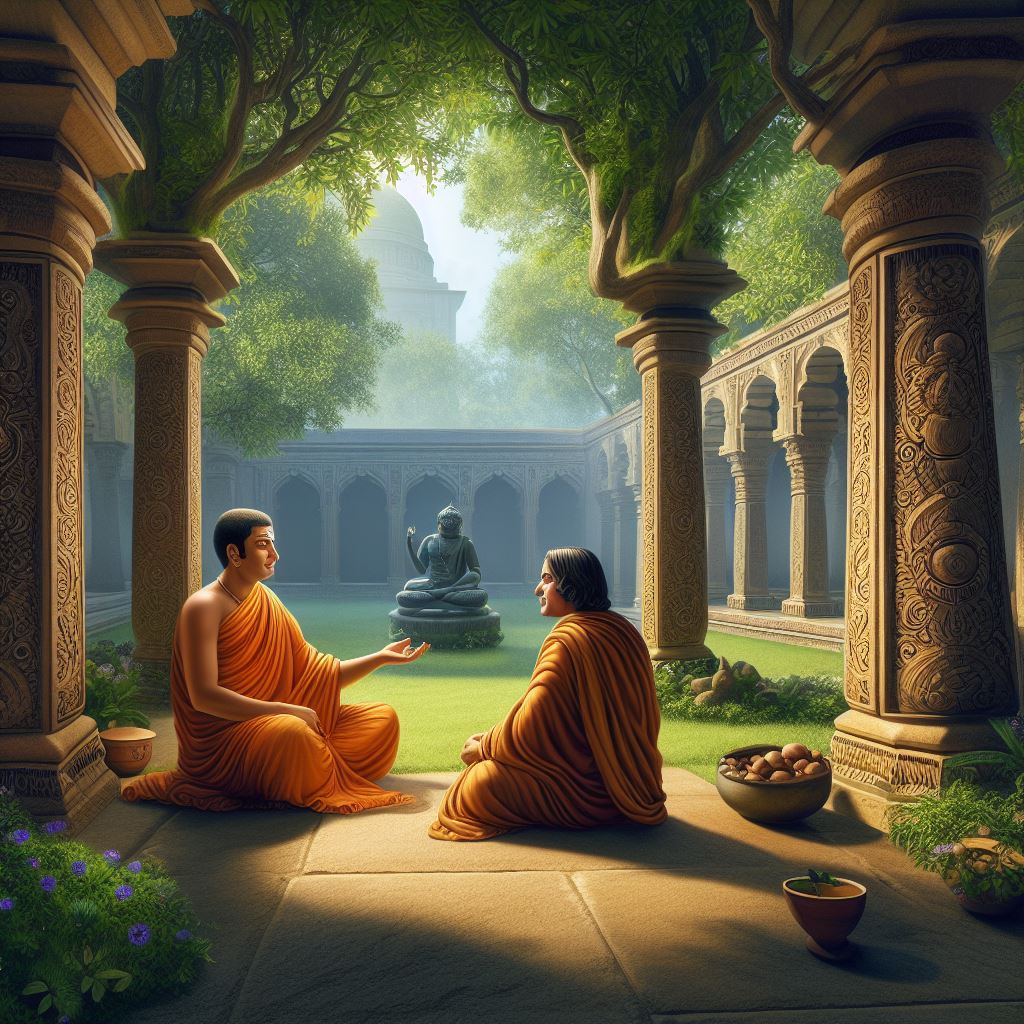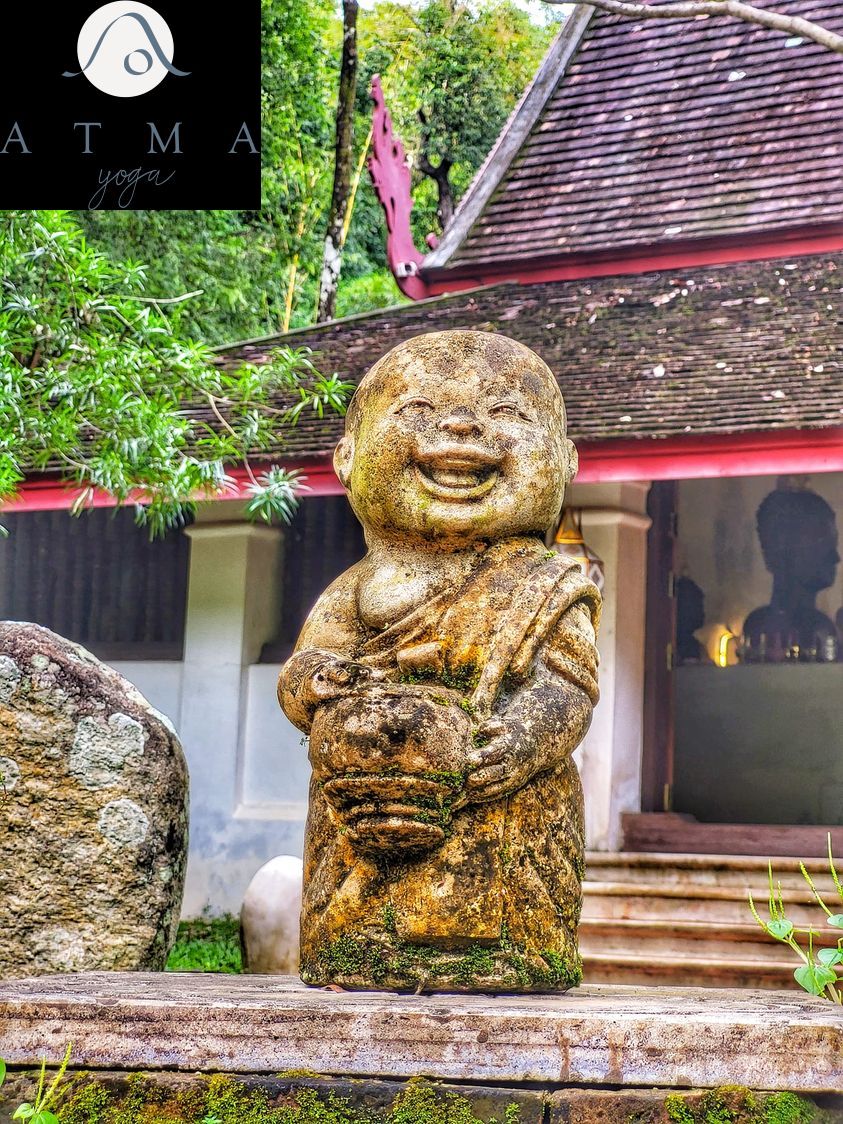Abhinavagupta: (with respectful expression) Hello, revered Patanjali. I have heard so much about your great work on the Yoga Sutras, and today I would like to discuss some points that have puzzled me.
Patanjali: (calmly and wisely) Hello, Abhinavagupta. I am happy to meet you and share my knowledge about the ancient practice of yoga.

Abhinavagupta: (with sincerity) Your work is undoubtedly valuable, but I have some doubts about your approach to yoga. For example, I find your statements too rigid and limiting. Your emphasis on mental restrictions through discipline and control seems to deny the very essence of inner freedom and direct experience.
Patanjali: (listening carefully) I understand your concerns, Abhinavagupta. My intent was to provide a disciplined method of freeing the mind from distractions and disturbances, paving the way to enlightenment.
Abhinavagupta: (with passion) Here's my point, Patanjali. The practice of yoga should be a path of joy and realization, not a set of stringent rules. I think the individual should be encouraged to explore his or her inner nature, without the burden of the rigid stages you have outlined.
Patanjali: (respectfully) I understand your view, Abhinavagupta. But my intent was to provide precise guidance for those on the path of yoga, to avoid detours and straying into distractions.

Abhinavagupta: (wisely) But true transformation occurs when an individual opens himself to experience without restriction. We must overcome the fear of inner chaos and accept uncertainty, for only then can we discover our true essence.
Patanjali: (thoughtful) Your words prompt me to reflect. Perhaps my method needs revision, to allow more space for the freedom of the individual.
Abhinavagupta: (with a smile) Exactly, Patanjali. Wisdom is a continuous flow, and our ideas and methods should evolve with it.
Patanjali: (with curiosity) But then, Abhinavagupta, what is the ultimate goal of your method?
Abhinavagupta: (with deep understanding) **The ultimate purpose of my approach to yoga is to realize the theory of Pratyabhijna, the revelation of divine identity. **We believe that the individual Self (Atman) is essentially identical to the Supreme Self (Brahman). Our practice aims to awaken this awareness of unity and connection with the Divine. Through deepening knowledge and direct experience, we seek to recognize our true divine nature.
Patanjali: (with admiration) The theory of Pratyabhijna seems to be a profound search for unity with the Divine. It is a wonderful discovery.
Abhinavagupta: (with gratitude) Thank you, Patanjali. Your theory of the separation of purusha from matter is equally significant. The understanding of how purusha can gain freedom by detaching itself from the influences of mind and body is invaluable for the pursuit of mindfulness.
Patanjali: (with humility) Yes, Abhinavagupta and Patanjali continue to share the profound theories of their respective methods of yoga and the ultimate purposes of their practices, deepening each other's understanding. The scene unfolds calmly and without tension as the sunset paints the sky in deeper and deeper colors. In the end, the two sages seem to have found common ground, with a mutual understanding that transcends differences of view.

Congratulations @atma-yoga! You have completed the following achievement on the Hive blockchain And have been rewarded with New badge(s)
Your next target is to reach 100 posts.
You can view your badges on your board and compare yourself to others in the Ranking
If you no longer want to receive notifications, reply to this comment with the word
STOPTo support your work, I also upvoted your post!
Check out our last posts: